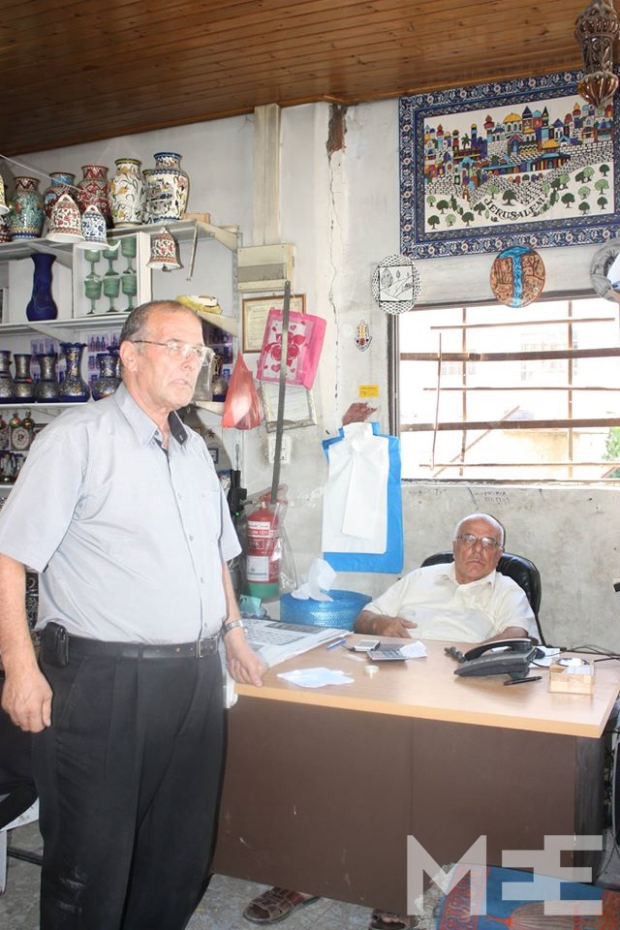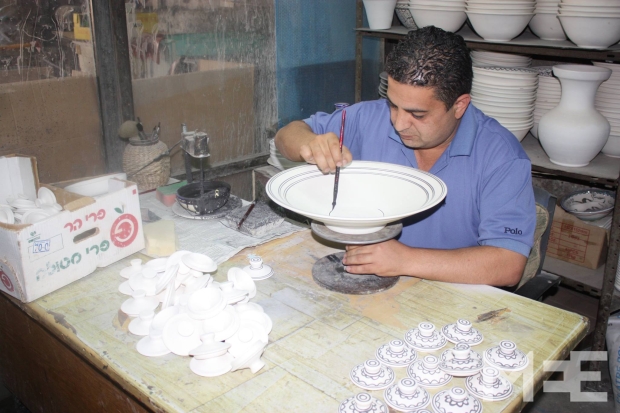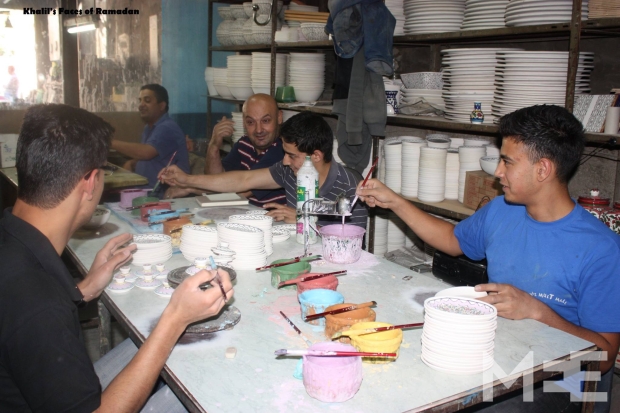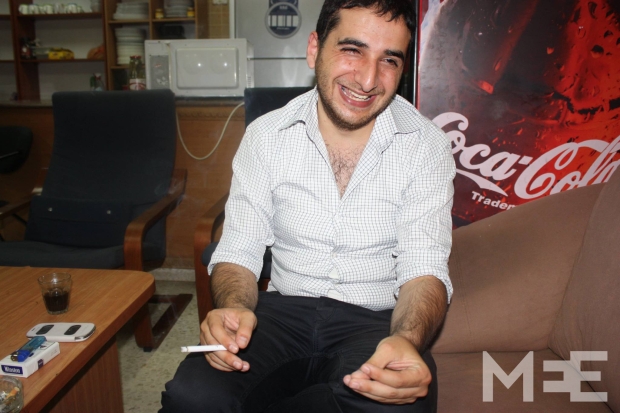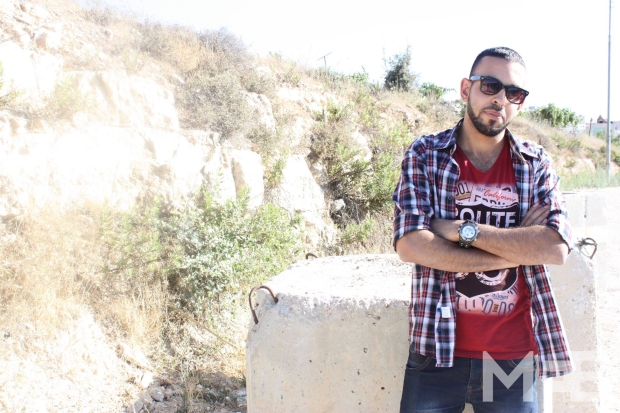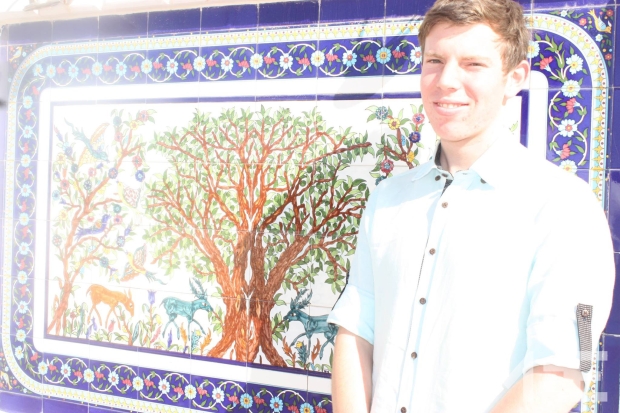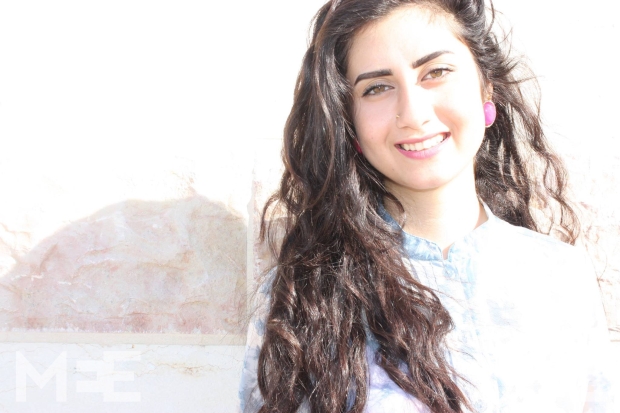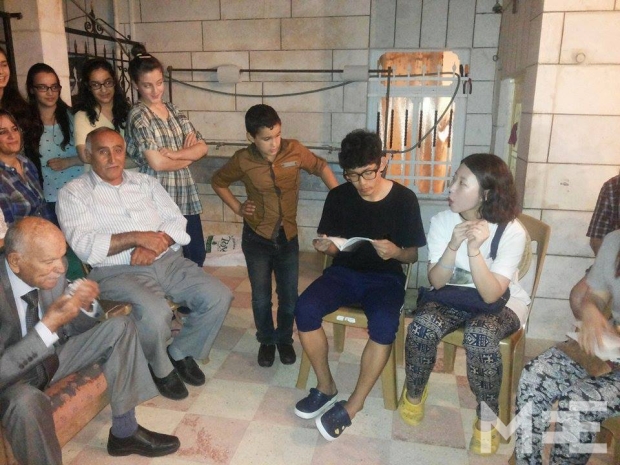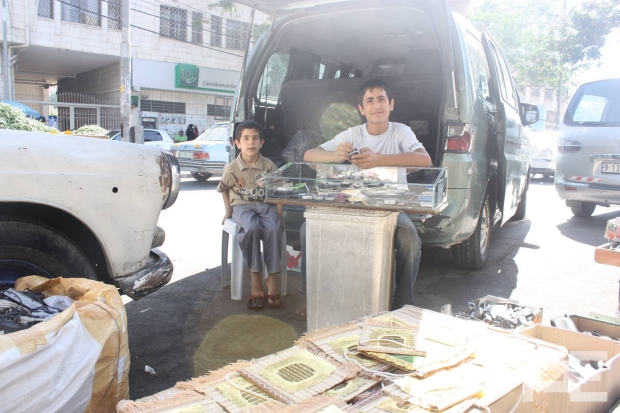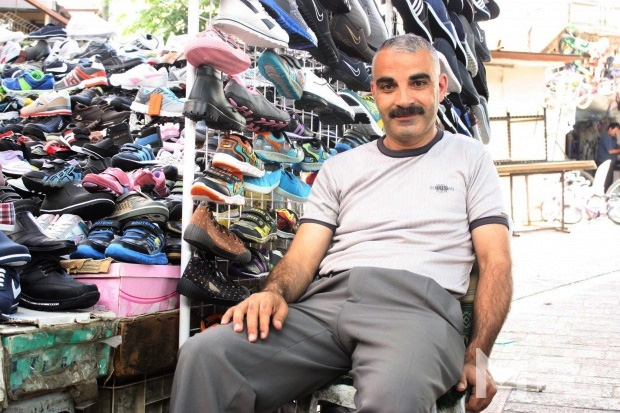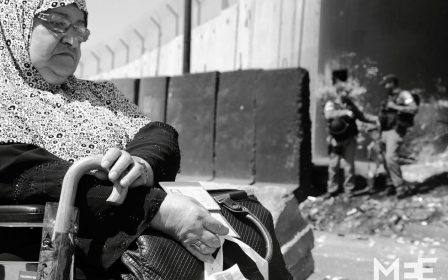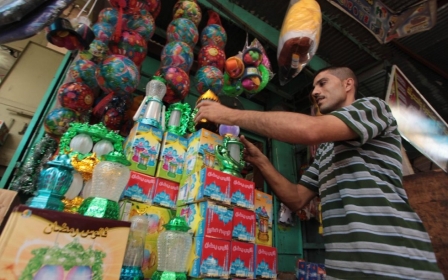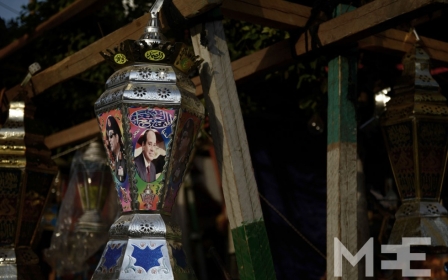Photo essay: A memorable Ramadan in Hebron
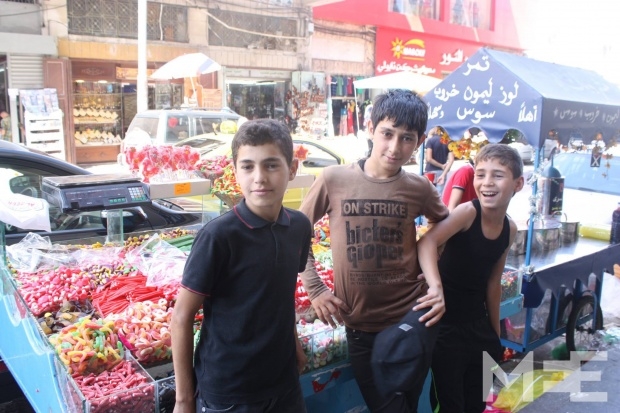
Despite the war in Gaza and the intense military operations carried out recently by Israeli soldiers throughout Hebron; the biggest city on the West Bank celebrated the holy month of Ramadan with fasting - and praying for peace and for change.
In times of great danger and insecurity, people reveal both their most raw and most humane faces. Ramadan, however, is a month dedicated to cherishing the community, the self and its relation to God.
Can religious and cultural traditions work to bring people together, sooth the disadvantaged and inspire good acts and brotherly love, even in times of war, injustice and death?
These questions and more drove my enthusiasm to be among the people in Hebron, in the midst of the happening, instead of hiding, as I entered into the second month of my student internship in Hebron.
When I first went out on the streets of Hebron (or “Khalil” as the Arabic name of the city reads) with a notebook, camera and a local friend in hand, I had no idea that the photos and interviews I would take would spark and exciting new project- and a social movement.
Three days after the discovery of the bodies of the three kidnapped Israeli settlers in Halhul, just outside Hebron, sick of hearing about new clashes, dead and injured, my friend Asala Salhab and I went out after work to take some interviews.
Our task was to examine the pulse of the community, which was suffering through one of its most difficult times. In the beginning of both Ramadan and a new Israeli massacre in Gaza, was there any hope left? How were these contrasting events influencing each other?
Since the first afternoon we started to photograph and interview random passers-by at different locations around Hebron, including The Old City. People responded enthusiastically and we were able to capture the faces, stories and insights of Hebronites, which conveyed their hope, faith and integrity. The same evening, I started the “Khalil’s Faces of Ramadan” Facebook group to host the profiles of men and women, young and old. Every photo was accompanied by an English and Arabic translation, and in less than a week, the group received over 1,000 likes; the posts were shared and discussed both online and offline.
As we captured the faces of those who carry on their everyday lives, religious and spiritual practices, despite the dangers and insecurity that Hebron faces, media and community leaders shared their positive feedback about the project.
“This initiative is very important because it allows us to see the diversity of individuals and richness of points of view that we don’t often acknowledge otherwise,” Anas Sarabta, manager of the Hebron Youth Development Resource Center said.
Haya Abu Shkaidem, a student in Hebron sent a “thank you” message reading, “I really like this page. It reveals the pretty side of Hebron which people all around Palestine and all around the world should see. It is something I could share with my non-Hebronite friends to let them know more about Hebron.”
In the days to follow, the project gained momentum and was promoted by word of mouth: “I saw your page and I was hoping I could run into you.” Mustafa Abu Sbaih told us smilingly, calling us to visit his shoe stand from across the street.
As we walked through The Old City on a Friday afternoon after one of the major prayers, people were requesting that we take their photos and hear their stories. And, interestingly, they were not all about politics and war. Love, future plans and desire to make a change made some voices tremble with passion.
“We, Palestinians have always paid attention on the need to document our political struggle for freedom. There are many documents, articles and books written on that. But we have done almost nothing to document the social life, the individual, who may not be a martyr or a fighter, but who is still fighting in his own way- and that is not any less interesting.” Tareq Tamimi, founder of “Visit Hebron” told us in acknowledgement of the project’s impact on the community.
The project will continue beyond the month of Ramadan with the support of locals taking on the enjoyable task of unlocking secrets and capturing fellow Hebronites’ faces.
The faces of Ramadan
Abu Khaled Al Natsha, the owner of a glass factory: "Ramadan is the month of fasting, worshiping. Nothing is more blessed than the gathering of the family to have the two main meals of Ramadan "Al Fotour" and "Al Sohour" meeting and visiting the relatives, eating different kinds of desserts .
"During Ramadan we have a slightly different working schedule. We start shaping glass in the evening and we do it throughout the night as it's difficult to work in this weather.
The most enjoyable activities we used to do in the past years in Ramadan were visiting Al-Aqsa Mosque and Abraham Mosque. Nowadays doing such a thing is restricted by the Israeli occupation."
This picture shows a relative of Abu Khaled Al Natsha who also works in the same factory. He warmly invited us into the room where the workers (all cousins) drew and painted pottery. He said their art was taught to them by their grandparents and was a much loved tradition. They don't slow down even in Ramadan and the beauty they create is as powerful as a prayer.
"Why don't you have any girls here?"- I asked.
"There are no girls here because they don't have the patience to do what we do."
"What else do you need to be good at what you do?"
"An eye for beauty and desire to learn".
"I was once walking with some colleagues on a street in Milano when we saw an old woman trying to pull up some stairs the wheel chair in which her husband sat. There were hundreds of people passing by and yet no one offered help. I asked my colleague Mariana to translate and to tell her that we could help her. After we helped she was so touched, she wanted to hug me!
If this was to happen anywhere in Hebron, everyone would try to help.
This is why I'm Hebron addicted, even though I was born in Bethlehem.
I am never afraid when I stand in front of an ATM. I'm not afraid that someone will steal from me. I love the coffee here. I know so many people, have such beautiful friends.
A famous poet said: "I chose you my homeland. And indeed, you don't choose where to be born, but you can choose which place to call "homeland". I chose Hebron. This is where I feel safe despite everything. This is where I belong and I'm accepted."
Adham is probably Hebron's most talented aspiring rap artist.
His YouTube channel is full of energetic, though-provoking, completely original rap songs dedicated to Palestine and it's struggle for a safe future.
"I always loved rap. I was a very good student at school, so in 2008 I started writing. It was extremely difficult as there was no place where young people like me could work on and record their own music. I didn't have money, so I couldn't pay for a professional studio…
Some time ago I found the Rosana studio in Hebron which was run by a very good man. He heard my songs and let me use the studio whenever I wanted, for free. I spent all my free time writing, rapping, recording.
It was the happiest time of my life.
Rap is kind of new to Palestinians. Not many people understand it. But my cloud sound profile is followed by people from Lebanon, Jordan and Syria…
I'm happy that my voice can shape these people's perception of Palestine."
19-year old Jamal tells us:
"My mother is French so I go to France every summer. Whenever I'm there I find out that I love all the things that I otherwise hate here."
I ask him about his studies and dreams.
"I study Political Science and Human Rights in Al Quds University. I want to help my community in all possible fields: the political, the social, the cultural. Whether I become a political leader or a teacher, I hope to have a great impact in the society."
We keep on talking about the situation in Hebron and how it relates to youth and he simply says:
"You never stop thinking of Peace. It's the goal of everyone."
Jumana is an 18-year old student in Al Quds University and she studies Medicine.
"Once I finished with my tawjihi (matriculation exams) I was very confused. First, I was thinking of studying Biology, then engineering, then economics. I wanted to make a change and I was very inspired by Gandhi's words "Be the change you want to see in the world". In the end I chose Medicine as it seemed to best match my desire to help people."
"Can doctors be political?" I asked her.
"People think that doctors know everything here"- she smiled. "Doctors not only cure sickness, but also educate. When people are educated, they know better."
We were having dinner at my uncle's house one day when suddenly all the kids went outside on the street and everyone got so excited. They hurriedly came back in and brought 4 Korean girls and boys who have come to Hebron as tourists and who were walking the streets exploring the city. The whole family was incredibly excited and welcomed them with great hospitality. My camera’s battery was dead, but I took a photo, nevertheless.
The Korean guests hadn't eaten anything as all restaurants are quite literally closed and everyone eats at home, so they served them much appreciated food. Such a great example of the spirit of Ramadan!
Mohamad Al Jabary who was helping his friend sell candies in front of Hebron Center Mall got very excited when we asked him for a picture and invited all his friends who were around to join the picture. All of them passionately said that they really love Ramadan.
13-year old Ahmad was selling old phones with his little brother despite the heavy sun. "I work here on holidays so that I don't feel bored. I'm very happy to be helping my father with his job."
This boy sells birds and rabbits on a street in Hebron.
His older brother told us he used to work in Ramallah but things didn't work out, so he had to come back.
He didn't want to stand in front of the camera. There was sadness in his voice.
Ahmad, Akram and Yazan are three cheerful boys who we really enjoyed talking to. Ahmad is a Jordanian. He is here in Palestine to visit his relatives.
"Ramadan in Hebron is very different", he said, "it feels like it's real Ramadan."
Mr. Mustafa Abu Sbaih was smiling from a far as if inviting us to stop and talk with him.
"In Ramadan we get closer to Allah, we learn what it feels like to be poor, needy and with no food".
"What are you praying for?" we asked. "I wish for lots of success and happiness for my children. I hope for a brighter morning with more security, freedom and justice. I'm praying for the Palestinian prisoners inside the Israeli jails."
Mr .Mustafa Abu Sbaih was smiling from a far as if inviting us to stop and talk with him.
"In Ramadan we get closer to Allah, we learn what it feels like to be poor, needy and with no food".
"What are you praying for?" we asked.
"I wish lots of success and happiness to my children. I hope for a brighter morning with more security, freedom and justice. I'm praying for the Palestinian prisoners inside the Israeli jails."
New MEE newsletter: Jerusalem Dispatch
Sign up to get the latest insights and analysis on Israel-Palestine, alongside Turkey Unpacked and other MEE newsletters
Middle East Eye delivers independent and unrivalled coverage and analysis of the Middle East, North Africa and beyond. To learn more about republishing this content and the associated fees, please fill out this form. More about MEE can be found here.


